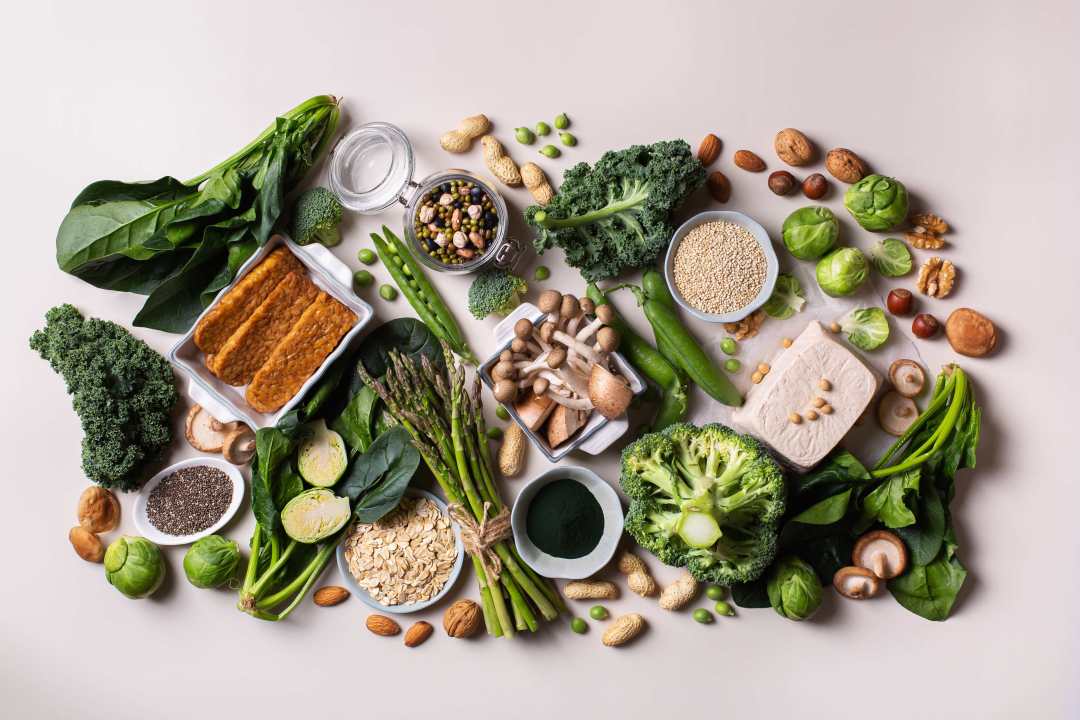At a time when Britain feels increasingly unstitched – with families queuing at food banks and sewage drifting from rivers to seas – it’s almost impressive that anyone has the emotional energy to be annoyed by vegans. Yet we continue to provoke strong feelings, and Katie Glass gave strong voice to them in these pages last week. So allow me to be annoying again, and disagree.
Katie says veganism is becoming an ‘extremist’ lifestyle. But to be vegan is, quite simply, to opt out. We choose, as consistently as possible, not to hurt, kill or exploit animals – nor to induce others to do it on our behalf. That’s it.
What’s truly extreme is the cruelty that vegans refuse to be part of. More than 92 billion land animals are slaughtered for food each year. In the UK, around 85 per cent of farmed animals live and die in industrial conditions that most of us would find unconscionable if we witnessed them first-hand. Male chicks can’t lay eggs so they get thrown into shredders soon after hatching. Calves are torn from their mothers so that the milk intended for them can go to humans. This isn’t vegan propaganda. It’s simply what happens.
Whether you consider yourself an animal lover or not, when you think of piglets having their testicles cut off without anaesthetic, or weaker newborns being smashed on the concrete floor in a practice known as ‘thumping’, does it seem more extreme to support this and pay people to inflict that kind of misery and bloodshed on animals, or to opt out and say it’s wrong?
I know it’s uncomfortable to dwell on what actually happens. The meat industry prefers us to talk about ‘choices’ and ‘personal preference’. But when somebody buys some bacon, their money flows through the checkout to the people who confine, torment and cut up the pigs. It’s not a metaphor. It’s not an ethics class. It’s a real transaction with real consequences.
Pigs are as intelligent as dogs, emotionally complex and capable of forming stronger social bonds than most people in Westminster. And yet, in slaughterhouses across Britain, they are herded into metal chambers and gassed to death. People who’ve witnessed their final minutes say they sound like screaming children. They panic. They writhe. The euphemism is ‘controlled atmosphere stunning’ but what happens is the CO2 gas burns their lungs from the inside. They die in terror. Isn’t that extreme?
Katie says that the UK vegan food market is both ‘growing’ and ‘dropping’, depending on which paragraph we’re in. There’s actually some truth in both claims: the novelty food market – the faux burgers and meatless meatballs – seems to have plateaued, but that’s a welcome evolution, not a setback. More vegans are choosing simplicity over simulation: pulses, grains, vegetables. Not because it’s fashionable, but because it’s food.
Katie also raises the familiar trope that vegan food can still be processed and unhealthy. And yes, of course it can. The point isn’t that all vegan food is virtuous. Junk food is still junk food, whether vegan or fleshy. The difference is that vegan food didn’t require the hurting and slaughtering of animals.
If you truly think it’s wrong to hurt animals, then you shouldn’t do it – and you shouldn’t pay others to do it on your behalf either
She says the fact that veganism is more environmentally friendly seems ‘dubious’ to her and offers a few hand-picked examples of issues with almond milk, quinoa and avocados. The thing is, many vegans don’t consume these things and many non-vegans do. The data from Oxford, Cambridge, Yale, the UN, the Intergovernmental Panel on Climate Change and elsewhere is clear: a plant-based diet remains one of the most powerful ways an individual can reduce their environmental impact. It’s not perfect – nothing is – but it’s one of the very best ways to help.
Another of her beefs comes in the form of: ‘What would we do with all the animals if everyone went vegan?’ In reality, that won’t be an issue because everyone won’t go vegan suddenly, all at once. As fewer people buy meat, fewer animals will be bred – the number of forced impregnations will continue to be driven by supply and demand.
Katie says vegans can be judgmental and I won’t quibble on that. Why not be? If you believe – truly believe – that sentient beings are suffering needlessly, isn’t it natural to say something? For some vegans, speaking out is emotionally akin to speaking out about child abuse or human trafficking. I think we all realise the horrors on some level but there’s a spectrum of how we respond: from numb silence to manic evangelising.
What marks out vegans is that we forgo things. We sacrifice. It’s not because we’re perfect – we’re all flawed in our own ways – but because on this topic we’ve each seen something we cannot un-see; felt something we cannot un-feel.
So perhaps it’s less that vegans are becoming extreme and more that we’re becoming inconvenient. We think many of the same things you think but we’ve gone a step further and done what you can’t bear to do. We’ve not only denied ourselves the meat and other animal products but also the belief that we were ever entitled to them – that our transient desire for taste or texture could ever be worth more than another being’s life.
If you truly think it’s wrong to hurt animals, then you shouldn’t do it – and you shouldn’t pay others to do it on your behalf either. That’s not extremism. It’s consistency. It’s mercy, in action. So if that feels annoying, perhaps it’s worth sitting with that for a while.








Comments